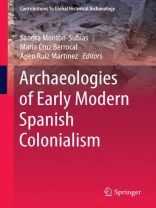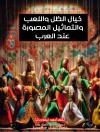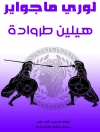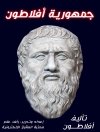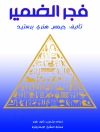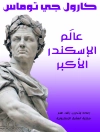Archaeologies of Early Modern Spanish Colonialism illustrates how archaeology contributes to the knowledge of early modern Spanish colonialism and the ‘first globalization’ of the 16th and 17th centuries. Through a range of specific case studies, this book offers a global comparative perspective on colonial processes and colonial situations, and the ways in which they were experienced by the different peoples. But we also focus on marginal “unsuccessful” colonial episodes. Thus, some of the papers deal with very brief colonial events, even “marginal” in some cases, considered “failures” by the Spanish crown or even undertook without their consent. These short events are usually overlooked by traditional historiography, which is why archaeological research is particularly important in these cases, since archaeological remains may be the only type of evidence that stands as proof of these colonial events. At the same time, it critically examines the construction of categoriesand discourses of colonialism, and questions the ideological underpinnings of the source material required to address such a vast issue. Accordingly, the book strikes a balance between theoretical, methodological and empirical issues, integrated to a lesser or greater extent in most of the chapters.
Daftar Isi
Chapter 1: Towards a Comparative Approach to Archaeologies of Early Modern Spanish Colonialism
Sandra Montón-Subías, María Cruz Berrocal and Apen Ruiz.- Part I: Archaeologies of Early Modern Spanish Colonialism in the Americas.- Chapter 2: Displacing Dominant Meanings in the Archaeology of Urban Policies and Emergence of Santafé de Bogotá (Colombia)
Monika Therrien.- Chapter
3: The Material Worlds of Colonizers in New Spain
Enrique Rodríguez-Alegría.- Chapter 4: Historical Archaeology and the Politics of Empowerment in Venezuela
Kay Tarble Scaramelli.- Chapter 5: Thoughts on Early Spanish Colonialism through two American Case Studies: Basque Fisheries (Canada) and Sancti Spiritus Settlement (Argentina)
Agustín Azkarate, Sergio Escribano, Iban Sanchez-Pinto and Verónica Benedet.- Part II: Archaeologies of Early Modern Spanish Colonialism in Africa.- Chapter 6: The Archaeology of the Early Castilian Colonialism in Atlantic Africa. The Canary Islands and Western Barbary (1478-1526)
Jorge Onrubia Pintado and María del Cristo González Marrero.- Chapter 7:The Jesuit Mission to Ethiopia (1557-1632) and the Origins of Gondärine Architecture (17th – 18th Centuries)
Victor M. Fernandez.- Chapter 8: Colonial Encounters in Spanish Equatorial Africa (18th – 20th Centuries)
Alfredo González-Ruibal, Llorenç Picornell and Manuel Sánchez-Elipe.- Part III: Archaeologies of Early Modern Spanish Colonialism in the Pacific.- Chapter 9: Beginning Historical Archaeology in Vanuatu: Recent Projects on the Archaeology of Spanish, French and Anglophone Colonialism
James Flexner, Matthew Spriggs, Stuart Bedford and Marcelin Abong.- Chapter 10: Spanish Colonial History and Archaeology in the Mariana Islands: Echoes from the Western Pacific
James M. Bayman and John A. Peterson.- Chapter 11: The Failed 16th Century Spanish Colonizing Expeditions to the Solomon Islands, S.W. Pacific: The Archaeologies of Settlement Process and Indigenous Agency
Martin Gibbs.- Chapter 12: Ilha Formosa, 17th Century: Archaeology in Small Islands, History of Global Processes
María Cruz Berrocal
Tentang Penulis
Sandra Montón Subías is an ICREA Research Professor in the Department of Humanities at Universitat Pompeu Fabra (Barcelona, Spain). She received a B.A. in Geography and History from Universitat de Barcelona (1988) and a Ph.D. in History from Universitat Autònoma de Barcelona (1993). Since then, she has been working at the University of Athens, at the Mc Donald Institute for Archaeological Research, at the University of Cambridge, at the University of California Santa Cruz, at the Northwestern University and at the National Taiwan University. In 2005 she was appointed as an ICREA Research Professor, first at Universitat Autònoma de Barcelona (2005-2007) and, since 2007, at Universitat Pompeu Fabra.
María Cruz Berrocal is Visiting Scholar at National Taiwan Normal University and Academia Sinica, and Fellow in the Zukunftskolleg, University of Konstanz. She received a B.A. in Geography and History (1996) and a Ph.D in Geography and History from Universidad Complutense de Madrid (2004). Since then, she has been working at University of California Berkeley, at CSICand at the National Taiwan Normal University. Her research interests include Prehistoric Rock Art, Iberian Prehistory, Historical Archaeology, theoretical Archaeology and Pacific Archaeology. She has recently published “The Early Neolithic in the Iberian Peninsula and the Western Mediterranean: a review of evidence on migrations” (Journal of World Prehistory 25 (3): 123-156, 2012) and the co-edited volume The Prehistory of Iberia. Debating Early Social Stratification and the State (Routledge: London, 2012).
Apen Ruíz Martinez
